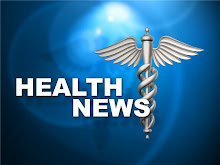
I really like coffee. The morning ritual of brewing a cup, the smell that perks me up before I take a sip and, of course, the flavor all make it my favorite beverage aside from water (water’s delicious!). As a registered dietitian and a nutrition editor for EatingWell Magazine, I know that coffee is fine in moderation. It has lots of antioxidants and is low in calories if you don’t load it up with cream and sugar. Nonetheless, I always feel slightly guilty about drinking it—you know, in a “it’s so good, it must be bad” kind of way.
Don’t Miss: 5 “Bad” Foods You Should Be Eating
Which is why I’m always delighted to hear of new reasons that coffee is good for your health...and there are plenty! Over 18,000 studies on coffee have been published in the past few decades, revealing these benefits, many of which Joyce Hendley wrote about in the March/April issue of EatingWell Magazine:
Recipes to Try: Hot Fudge Pudding Cake and Other Coffee-Infused Recipes
Don’t Miss: How to Brew a “Greener” Cup of Coffee
1. It protects your heart: Moderate coffee drinkers (1 to 3 cups/day) have lower rates of stroke than noncoffee drinkers, an effect linked to coffee’s antioxidants. Coffee has more antioxidants per serving than blueberries, making it the biggest source of antioxidants in American diets. All those antioxidants may help suppress the damaging effect of inflammation on arteries. Immediately after drinking it, coffee raises your blood pressure and heart rate, but over the long term, it actually may lower blood pressure as coffee’s antioxidants activate nitric acid, widening blood vessels.
2. It diverts diabetes: Those antioxidants (chlorogenic acid and quinides, specifically) play another role: boosting your cells’ sensitivity to insulin, which helps regulate blood sugar. In fact, people who drink 4 or more cups of coffee each day may have a lower risk of developing type 2 diabetes, according to some studies. Other studies have shown that caffeine can blunt the insulin-sensitivity boost, so if you do drink several cups a day, try mixing in decaf occasionally.
Must-Read: 4 Diet-Busting Coffee-Shop Drinks (and What to Drink Instead)
3. Your liver loves it: OK, so the research here is limited, but it looks like the more coffee people drink, the lower their incidence of cirrhosis and other liver diseases. One analysis of nine studies found that every 2-cup increase in daily coffee intake reduced liver cancer risk by 43 percent. Again, it’s those antioxidants—chlorogenic and caffeic acids—and caffeine that might prevent liver inflammation and inhibit cancer cells.
4. It boosts your brain power: Drinking between 1 and 5 cups a day (admittedly a big range) may help reduce risk of dementia and Alzheimer’s disease, as well as Parkinson’s disease, studies suggest. Those antioxidants may ward off brain cell damage and help the neurotransmitters involved in cognitive function to work better.
5. It helps your headaches: And not just the withdrawal headaches caused by skipping your daily dose of caffeine! Studies show that 200 milligrams of caffeine—about the amount in 16 ounces of brewed coffee—provides relief from headaches, including migraines. Exactly how caffeine relieves headaches isn’t clear. But scientists do know that caffeine boosts the activity of brain cells, causing surrounding blood vessels to constrict. One theory is that this constriction helps to relieve the pressure that causes the pain, says Robert Shapiro, M.D., Ph.D., associate professor of neurology and director of the Headache Clinic at the University of Vermont Medical School.
Now, that’s not to say that coffee doesn’t have any pitfalls—it does. Some people are super-sensitive to caffeine and get jittery or anxious after drinking coffee; habitual coffee drinkers usually develop a tolerance to caffeine that eliminates this problem (but they then need the caffeine to be alert and ward off withdrawal headaches). Coffee can also disturb sleep, especially as people age. Cutting some of the caffeine and drinking it earlier in the day can curb this effect. Lastly, unfiltered coffee (like that made with a French press) can raise LDL cholesterol, so use a filter for heart health.
But if you like coffee and you can tolerate it well, enjoy it...without the guilt.





























































0 comments:
Post a Comment